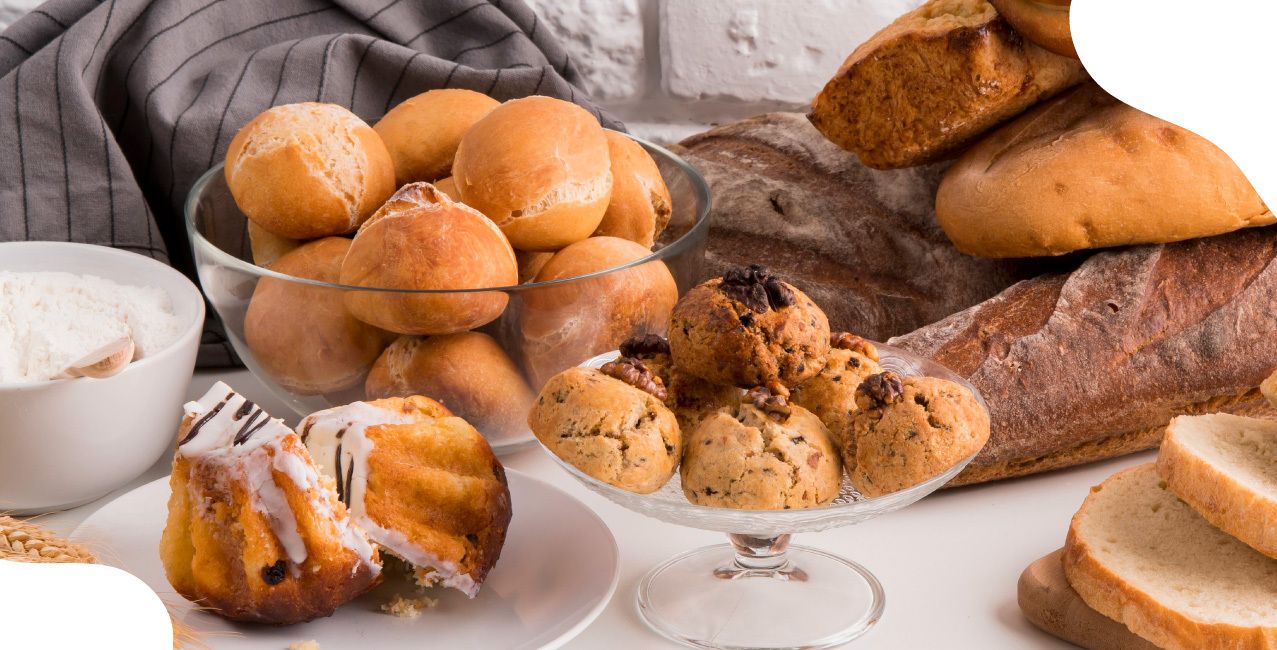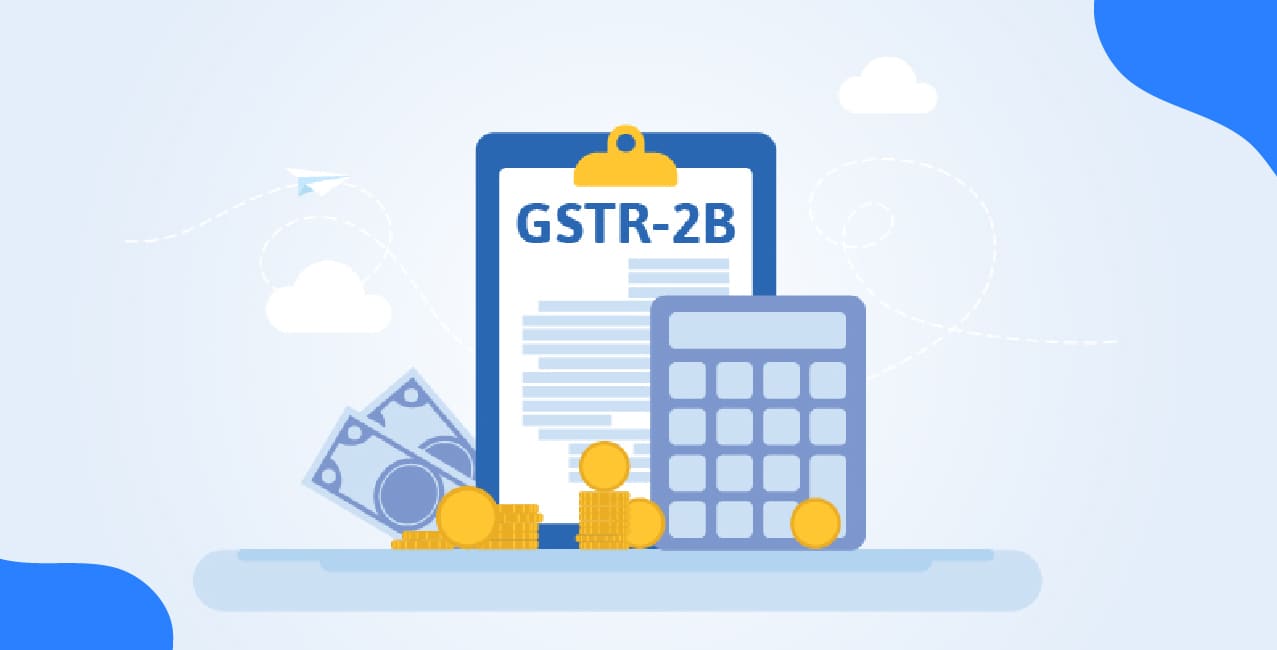GST on Bakery Items – Updated Rates & Complete Guide

Check Your Loan Eligibility Now
By continuing, you agree to LoansJagat's Credit Report Terms of Use, Terms and Conditions, Privacy Policy, and authorize contact via Call, SMS, Email, or WhatsApp
Key Takeaways
- GST on bakery items is 18% for cakes, pastries, and biscuits.
- Basic staples such as plain bread and chapatti do not attract any GST.
- Bakeries can claim ITC on ingredients, packaging, and other business expenses.
GST on bakery items refers to the tax applied to baked goods such as cakes, pastries, biscuits, and bread under India’s Goods and Services Tax system. The rates vary depending on whether the item is considered an essential product or a luxury good.
For instance, a packet of biscuits attracts 18% GST, while plain bread remains exempt to keep daily essentials affordable. This distinction ensures fairness for both consumers and businesses.
In this blog, we will explore the impact of GST on bakery items, the applicable rates, Input Tax Credit benefits for bakeries, and how compliance shapes the industry.
Different Categories of Bakery Items with GST Rates
The GST Council has revised tax rates on several bakery products to make them more affordable for consumers. These changes, effective from 22nd September 2025 (Navratri), cover cakes, biscuits, pastries, pizza bread, and traditional Indian breads.
With these revised GST rates, bakery products have become more affordable for households as well as the food industry. This move is expected to boost consumption, encourage small bakers, and bring relief to consumers who enjoy both modern and traditional baked goods.
Read More - GST on Atta – Why Your Daily Dough Now Costs a Bit More
Bakery Items Types with their respective HSN Codes
Bakery items come in many varieties, from simple bread to indulgent cakes and pastries. Under GST, each type of bakery product is classified with an HSN code to ensure uniform taxation across the industry. Below is the classification for key bakery items.
Classifying bakery products with HSN codes brings clarity and consistency in taxation. By identifying each product type under specific HSN codes, GST ensures fair treatment for both essential bakery items and luxury baked goods.
Impact of GST on Bakery Items Industry with Examples
The bakery industry in India has changed a lot after GST was introduced. By bringing all taxes under one system, GST has created both benefits and challenges for bakers, shop owners, and customers.
Standardised Taxation
GST replaced many old taxes with one clear rate. This makes it easier for bakeries to follow rules. For example, cakes, pastries, and biscuits now fall under GST, which helps in keeping prices transparent.
Example: If a pastry costs ₹100, GST of ₹18 is added. The customer pays a final price of ₹118.
Impact on Pricing
Basic foods like plain bread and chapatti are free from GST, which keeps them affordable for daily use. But special items such as cakes, biscuits, and pastries have GST, which makes them cost a little more.
Example: A bread loaf costing ₹30 has no GST. But a biscuit packet worth ₹50 will have ₹9 GST, so the final price becomes ₹59.
Effect on Small Bakeries
Small bakeries gain from simple tax rules but may face extra work in keeping GST records and invoices. This can affect how they set prices and compete in the market.
Input Tax Credit (ITC) Advantage
Bakeries can use ITC to lower their tax costs. They can claim GST paid on ingredients like flour, sugar, or packaging and adjust it with the GST they collect on sales.
Example: If a bakery buys raw materials worth ₹1,00,000 and pays ₹18,000 GST, and later sells goods worth ₹2,00,000 with ₹36,000 GST, it can use the ₹18,000 ITC. This reduces its final tax payment.
GST on bakery items has made taxation more transparent and fair. Everyday essentials stay cheap without GST, while premium bakery products pay higher tax. This system balances customer affordability with business compliance.
Bonus Tip: Keep clear records of exempt goods like plain bread separately from taxable products to avoid mistakes when filing GST on bakery items.
Also Read - GST on Food and Restaurants: Complete Guide with Rates & Impact
Input Tax Credit on GST On Bakery Items
Under GST, bakery businesses can claim Input Tax Credit (ITC) on the GST paid for ingredients and supplies. This reduces their overall tax burden.
- Eligibility: Only GST-registered bakery suppliers can claim ITC.
- Ingredients: ITC is available on GST-paid for flour, sugar, milk, eggs, flavourings, and other inputs.
- Invoices: Maintain GST invoices with supplier and buyer details, HSN code, and GST amount.
- Invoice Matching: ITC is allowed only if sthe upplier and buyer returns match on the GST portal.
- GST Returns: File returns regularly and accurately to claim ITC.
- Reversal: ITC must be reversed if payment to suppliers is not made within 180 days or if invoices mismatch.
- Compliance: Keep proper records, as GST authorities may cross-verify claims.
By following these rules, bakery suppliers can use ITC to lower their tax liability and keep their business compliant.
Bonus Tip: Always issue a proper GST invoice for sales, as it ensures transparency and helps in claiming ITC correctly on GST on bakery items.
GST Registration Requirements for Bakeries
Running a bakery involves selling a mix of goods like bread, cakes, biscuits, and pastries. Since many of these items fall under GST, it is important for bakeries to understand when registration becomes mandatory.
Key Requirements for GST Registration
- Turnover Threshold: A bakery must register under GST if its annual turnover exceeds ₹40,00,000 (₹20,00,000 for service-oriented bakeries).
- Interstate Supply: Supplying bakery products across state borders requires compulsory GST registration.
- E-commerce Sales: Bakeries selling through online platforms must obtain GST registration.
- Reverse Charge Mechanism: If a bakery is liable to pay tax under the reverse charge system, GST registration becomes mandatory.
GST registration ensures bakeries remain compliant while allowing them to avail input tax credit. It expands their business smoothly across markets.
Conclusion
GST on bakery items has brought uniformity and transparency in the taxation of baked goods. While essential products like plain bread remain exempt. Luxury items such as cakes, pastries, and biscuits attract higher tax rates. Overall, GST on bakery items balances affordability for consumers with compliance for businesses. It ensures fairness across the bakery industry.
FAQ’s
Are all bakery products taxed under GST?
No, not all bakery items are taxed. Essentials like plain bread and chapatti are exempt. Items such as cakes, pastries, biscuits, and pizza bread fall under specific GST slabs.
Do home-based or cloud bakeries need GST registration?
Yes, if their annual turnover crosses the prescribed threshold or if they sell through e-commerce platforms. Even home-based or cloud bakeries must register under GST.
Can delivery charges on bakery products include GST?
Yes, if a bakery charges for home delivery, GST is also applicable on the delivery fee.
Is GST on bakery items the same across all Indian states?
Yes, GST ensures a uniform tax rate on bakery products nationwide. Removing the earlier variation in state-level taxes.
How does GST impact bakery pricing?
GST allows bakeries to claim input tax credit on raw materials, packaging, and equipment. This lowers costs and helps keep final product prices competitive.
Other Related Pages | |||
About the author

LoansJagat Team
Contributor‘Simplify Finance for Everyone.’ This is the common goal of our team, as we try to explain any topic with relatable examples. From personal to business finance, managing EMIs to becoming debt-free, we do extensive research on each and every parameter, so you don’t have to. Scroll up and have a look at what 15+ years of experience in the BFSI sector looks like.
Subscribe Now
Related Blog Post
Recent Blogs
All Topics
Contents
Quick Apply Loan
Consolidate your debts into one easy EMI.
Takes less than 2 minutes. No paperwork.
10 Lakhs+
Trusted Customers
2000 Cr+
Loans Disbursed
4.7/5
Google Reviews
20+
Banks & NBFCs Offers
Other services mentioned in this article








